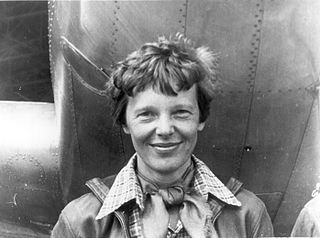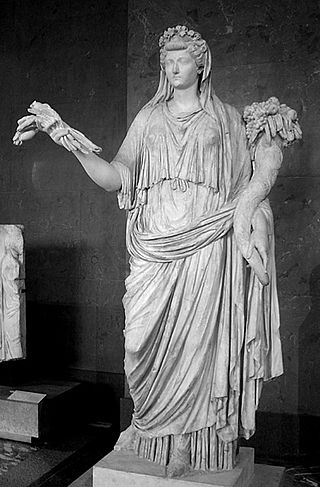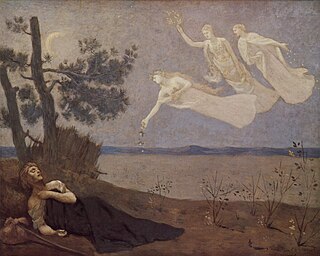| Pronunciation | /ˈsɪərʃə,ˈsɜːrʃə/ SEER-shə, SUR-shə Irish: [ˈsˠiːɾˠʃə] |
|---|---|
| Gender | female |
| Language(s) | Irish |
| Origin | |
| Meaning | "freedom" |

Saoirse is an Irish female given name which became popular in Ireland in the 1920s. [1] [2]
| Pronunciation | /ˈsɪərʃə,ˈsɜːrʃə/ SEER-shə, SUR-shə Irish: [ˈsˠiːɾˠʃə] |
|---|---|
| Gender | female |
| Language(s) | Irish |
| Origin | |
| Meaning | "freedom" |

Saoirse is an Irish female given name which became popular in Ireland in the 1920s. [1] [2]

Chloe, also spelled Chloë, Chlöe, or Chloé, is a feminine name meaning "blooming" or "fertility" in Greek. The name ultimately derives, through Greek, from the Proto-Indo-European root *ǵʰelh₃-, which relates to the colors yellow and green. The common scientific prefix chloro- derives from the same Greek root. In Greek the word refers to the young, green foliage or shoots of plants in spring.

Maeve, Maev or Maiv is a female given name of Irish origin. It comes from the Irish name Méabh, which was spelt Meadhbh in Early Modern Irish, Meḋḃ or Meaḋḃ in Middle Irish, and Medb in Old Irish. It may derive from a word meaning "she who intoxicates", "mead-woman", or alternatively "she who rules". Medb is a queen in Irish mythology who is thought to have originally been a sovereignty goddess.

Amelia is a feminine given name. Its English form was likely influenced by the names Amalia, derived from the German word amal meaning work, and Emilia, which is derived from the name of the Roman Aemilia gens. The name of the gens is likely derived from the Latin word aemulus, meaning rival. The name Amelia has been associated with both names as well as with the name Emily, also derived from Emilia.

Greencastle is a commercial fishing port located in the north-east of the Inishowen Peninsula on the north coast of County Donegal in Ulster, Ireland. The port is on the western shores of Lough Foyle. Nowadays, given the decline in the fishing industry, it resembles more closely a 'typical' Donegal holiday village. It is located a few miles from Moville and is about 20 miles from Derry.
Fiona is a feminine given name of Gaelic origins. It means white or fair, the Irish name Fíona means vine. It was coined by Scottish writer William Sharp. Sharp may have drawn inspiration from Celtic variations of the name Catherine. Initially, the name was confined to Scotland but later it gained popularity in other countries, such as Liechtenstein, Switzerland, Australia, Germany and Canada.
Rónán, anglicised as Ronan, is an Irish and Breton male given name and surname. As a surname, it is derived from the Gaelic Ó Rónáin 'descendant of Rónán'. The name is likely derived from rón, the Irish word for 'seal'.
Caitlin is a feminine given name of Irish origin. Historically, the Irish name Caitlín was anglicized as Cathleen or Kathleen. In the 1970s, however, non-Irish speakers began pronouncing the name according to English spelling rules as KAYT-lin, which led to many variations in spelling such as Caitlin, Ceitlin, Catelynn, Caitlyn, Katlyn, Kaitlin, Kaitlyn, Katelyn and Katelynn.

Patricia is a gender neutral given name of Latin origin. Derived from the Latin word patrician, meaning "noble"; it is the feminine form of the masculine given name Patrick. Another well-known variant of this is "Patrice".
Sorcha is a Gaelic feminine given name. It is common to both the Irish and Scottish Gaelic languages, and is derived from the Old Irish word sorchae, soirche meaning "brightness".
Caoimhe, sometimes anglicised as Keeva, is an Irish feminine given name derived from Irish caomh "dear; noble". It means beautiful. It is derived from the same root as the masculine name Caoimhín (Kevin). It has been well-used in English-speaking countries and particularly in Ireland.

Saoirse Una Ronan is an American-born Irish actress. Primarily known for her work in period dramas since adolescence, she has received various accolades, including a Golden Globe Award, in addition to nominations for four Academy Awards and five British Academy Film Awards.

Hannah spelled Hanna, Hana, Hanah, or Chana, is a feminine given name of Hebrew origin. It is derived from the root ḥ-n-n, meaning "favour" or "grace"; A Dictionary of First Names attributes the name to a word meaning 'He (God) has favoured me with a child'. Anne, Ana, Ann, and other variants of the name derive from the Hellenized Hebrew: Anna.
Ciara is a popular Irish language female name and was tenth on the list of most popular names given to baby girls in Ireland in 2006. It is the feminine version of the name Ciarán, meaning "dark-haired", and was also the name of Saint Ciara, a seventh-century Irish saint venerated by the Roman Catholic Church. The name is often anglicized as Keira, Kiara, or Kiera.
Ava is a feminine given name in English and in other languages. Its recent popularity may be linked to a number of celebrity babies of the 1990s, some of whom were ultimately named after American actress Ava Gardner (1922–1990).

Aisling is an Irish language feminine given name meaning "dream" or "vision". It refers to an aisling, a poetic genre that developed in Irish poetry during the 17th and 18th centuries. There is no evidence that it was used as a given name before the 20th century. The name is included in Reverend Patrick Woulfe's 1923 collection of Irish names, with the comment that the name was in use in Derry and Omeath.
Alison is a unisex given name in English-speaking countries, traditionally feminine. It was originally a medieval French nickname for Alis, an old form of Alice derived with the suffix -on or -son sometimes used in the former French nicknames. The Middle English form was Alisoun.
Saoirse is the Irish language word for "freedom" and may refer to:

Brooklyn is a 2015 romantic period drama film directed by John Crowley and written by Nick Hornby, based on the 2009 novel of the same name by Colm Tóibín. A co-production between the United Kingdom, Ireland, and Canada, it stars Saoirse Ronan in the lead role, with Emory Cohen, Domhnall Gleeson, Jim Broadbent, and Julie Walters in supporting roles. The plot follows Eilis Lacey, a young Irishwoman who immigrates to Brooklyn in the early 1950s to find employment. After building a life there, she is drawn back to her home town of Enniscorthy and has to choose where she wants to forge her future. Principal photography began in April 2014 with three weeks of filming in Ireland, which were followed by four weeks in Montreal, Quebec; only two days of filming took place in Brooklyn, one of which was spent at the beach in Coney Island.

Song of the Sea is a 2014 animated fantasy film directed and co-produced by Tomm Moore, co-produced by Ross Murray, Paul Young, Stephen Roelants, Serge and Marc Ume, Isabelle Truc, Clement Calvet, Jeremie Fajner, Frederik Villumsen, and Claus Toksvig Kjaer, and written by Will Collins from Moore's story. An international co-production between the Republic of Ireland, Belgium, Denmark, France and Luxembourg, it is the second feature film by Cartoon Saloon. The film is the second instalment of Moore's "Irish Folklore Trilogy", following his previous film The Secret of Kells (2009) and preceding the film Wolfwalkers (2020). It is also the only one to be set in contemporary times, as the aforementioned two films take place during the Middle Ages and the 17th century respectively.
For the first and second Irish Film and Television Awards ceremonies, supporting performances for film and television were combined into one category. Up until the 2018–2019 film season, awards were given for films released in Ireland the previous year.